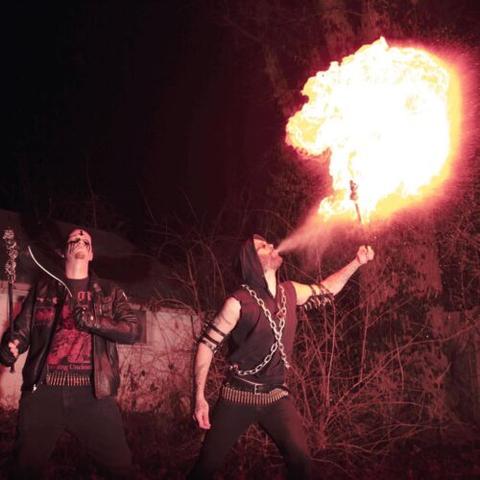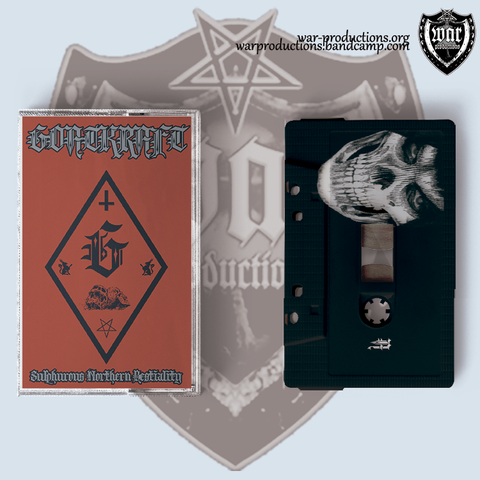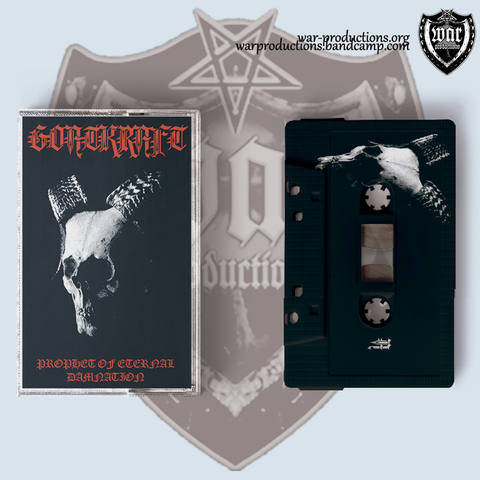By This Word Alone
https://youtu.be/JOeau_XJgA0
Psalm 138: 7, 8a, 9b-c: Though God be high, God cares for the lowly; God perceives the haughty from afar. Though we walk in the midst of trouble, you, Abba God, keep us safe; Abba God, your love endures for ever; do not abandon the works of your hands.
Introduction
Last week I referred to the reality that we have been exposed for having lost our voice in the world thus our place and relevance in the world because we’ve forsaken the message of Christ in word and deed and have traded our spiritual authority of the reign of God for the acceptance and amicability of the kingdom of humanity. In our pursuits for intellectual validity in an age ruled by the rational and reasonable, we’ve whittled down the gospel into something easily digestible as post-enlightenment, (now) post-modern, scientific, fact and data driven, educated people. Few people (if any) are currently running to the church for help or find themselves desperate to hear what the church will do or say. The church may be stepping in to help here and there, but being a “force to be reckoned with” in the temporal realm? Nah. The mainline non-denominational, big-box churches are already in the pocket of the rulers and authorities of the kingdom of humanity eager to uphold the status-quo and gain their bit of power and prestige. And the mainline denominational churches desperate to make traditional spirituality great again were seduced into the siren song of ambiguous statements of love to make sure they kept the few they had in the pews. And let us not forget the overwhelming amount of toxicity and violence that has come from the hand of those charged to do right and keep safe the beloved of God. So, fam, we’ve achieved exactly what we were desperate to avoid: we’ve lost relevance.
To find that relevance once again, we must return to the age-old yet intellectually awkward proclamation of Jesus Christ—the one who was crucified and raised by God, the one who sets the captives free by word and in deed, flips tables, yells at winds and waves, exposes people, calls the least of these his friends and family, and has absolutely no problem confronting rulers and spiritual leaders of all stripes and types in the kingdom of Humanity. And by getting in touch with this weird, pre-modern, mythologically laden message, find ourselves (re)oriented to God, faces brazen with God’s glory and presence. In returning to the proclamation we’ve been given, we will also step in under the gracious, merciful, beautiful, light yoke of God’s expectations for us as the church—love mercy, do justice, and walk humbly.
In other words, the foundation of the church is completely and totally dependent on the whacky and far-out stories of Jesus of Nazareth whom faith declares is the long-awaited Messiah of God and who is God—God of very God. It is precisely in and on these stories, these myths, where the church finds its unique identity to live and its concrete truth to speak into the world.
1 Corinthians 15:1-11
For I make known again to you, siblings, the good news which I preached to you, and which you received, and in which you have stood, through which you are being saved by what words I preached to you if you holdfast, except if you believed at random. (1 Cor. 15: 1-2)
Paul gives us a clear and crisp definition of the “good news” on which, through which and by which the Church stands or falls and finds its unique identity and its concrete truth.[1] This is not some story that Paul came up with, but the very story that started the tradition of the church and will keep the church embedded as a force in the world for good and God’s glory and the wellbeing of the neighbor. Paul says clearly to the Corinthians, I am telling you all again, my siblings, the good news I (have already) announced to you (v. 1a-b). In other words, Paul is reminding the Corinthians of the word of God that is the good news that God has proclaimed and promised from the beginning of the cosmos. He’s keeping this story very straight and clear and expects the Corinthians not to veer—in any way—from this tradition they’ve received from him. Thus, why Paul then says, and which you received (in turn[2]) and in which you have stood, and through which you are being (and will be) saved by what words I preached to you (vv. 1c-2b). They must remain on course because it is the ground under their feet. According to Paul, it is important for the Corinthians to hold fast to this particular message and not one of their own or a hodge-podge from what he said. Otherwise in straying and believ[ing] incoherently[3] (v. 2c), the Corinthians are not on solid ground and are not being saved.
For I handed over to you first and foremost what I also received… (v. 3a-b). What is the message that Paul preached and handed over and received and the Corinthians are being exhorted to hold fast to and not stray from? Each part of the crazy and whack story about Jesus of Nazareth, the Christ. That Christ died on behalf of our sins according to the scriptures, and that he was buried, and that he was raised on the third day according to the scriptures, and that he was seen by Cephas and then by the twelve[4] (vv. 3c-5). This is the good news, τὸ εὐαγγέλιον (the gospel) Paul referenced back in v. 1, this is what he received and handed over[5] and through which the Corinthians are being saved;[6] this message, not part of it, not the comfortable bits, not another rendition. And it’s this message and its coherent grasp that is the foundation and the means by which the Corinthians are coming into an encounter with God by faith through Christ and by the power of the Holy Spirit. It is by this message and this alone that Christian faith and identity have its foundation, substance, and truth.[7] For Paul, the way this all works out is more than dogmatic (forced) confession and adherence, but the truth and actuality of a personal confession that is born of experiencing the summoning to life out of death of this good news.[8]
Paul then tells the Corinthians that Jesus in his resurrected state was seen by more than 500 siblings once for all, many of whom many remain until now, though some fell asleep. Afterward, he was seen by James [Jesus’s brother[9]], then by the all the apostles (vv. 6-7). Affirming the actuality of Jesus’s resurrection, Paul then presses in on the reality of the theme of Corinthians 15: God is God[10] and it’s this God who is God who is the one who brings the dead to life by grace and promise.[11] Paul writes, Then lastly as if one miscarried he was seen by also me, for I, I am the least of the apostles, of whom I am not fit to be called an apostle because I persecuted the church of God; but by the grace of God I am who I am, and the grace of God toward me has not become fruitless, but to a greater degree I worked harder of them all, but not I but the grace of God in me. Through Paul’s confession and witness, those who are stuck are liberated, those who are afflicted are comforted, those who are untimely born are reborn in time, and those who are dead are made alive. According to Paul (by confession and experience), it’s the unmerited grace of God that is the breath of new life. [12] Thus, if for Paul than for the Corinthians[13]—individually and as the community.[14] It’s the promise of God fulfilled in and through the birth, life, death, resurrection, and ascension of Jesus Christ that is the word of God that brings the dead to life,[15] gives authentic identity in the place of a sham identity, and replaces falsehood with truth.[16] It’s the death and resurrection of Jesus Christ that is, according to Paul, the firm foundation of the church; [17] apart from this there’s nothing to stand on, nothing to substantiate, nothing of relevance for the Christian community, the Church. Every part of Corinth’s existence is by God or not at all.
Conclusion
When the church fails to adhere to this message, when it decides what parts are worthy, reasonable, and rational at the expense of the other parts it will lose itself. In that moment, as it steps out from under and out of God’s grace and God’s word, the very thing it fears will happen: the church will cease to be relevant. But, according to Paul, the Church, sits precariously balanced on the solid word of God found in Christ by the power of the Holy Spirit; when the church stands on this word, proclaims this word, believes this word—as scary as that can be at times—the church finds itself square in the grace of God and supplied with God’s grace to carry on.[18] It is in adhering to this ancient claim that creates the timelessness of the church—it is the very essence of the invisible church, the ties that bind beyond human-made boundaries randomly drawn in the ground, beyond separations of generations of time, and beyond seemingly uncrossable expanses of space. It is this word that brings light where there is darkness, love where there is indifference, liberation where there is captivity, and life where there is death. It is on and by this divine word—the word of Christ crucified and raised—and this word alone that the church is the church in the world to the well-being of the neighbor and to the glory of God.
[1] Anthony C. Thiselton, The First Epistle to the Corinthians, NIGTC, eds. I. Howard Marshall and Donald A. Hagner (Grand Rapids: Eerdmans, 2000), 1169. “The cross…remains ‘the ground and criterion’ of Christian existence and Christian identity.”
[2] Thiselton, First Corinthians, 1185. “The readers have in turn…received it. This is a happy rendering…to indicate transmission of a tradition for which the thrice-repeated καί is scarcely accidental.”
[3] Thiselton, First Corinthians, 1186. “Here Paul envisages the possibility of such a superficial or confused appropriation of the gospel in which no coherent grasp of its logical or practical entailments for eschatology or for practical discipleship had been reached. Incoherent belief is different from believing in vain.”
[4] Thiselton, First Corinthians, 1205. “…the twelve became a formal title for the corporate apostolic witness of those who had also followed Jesus during his earthly life, and who therefore underlined the continuity of witness to the One who was both crucified and raised.”
[5] Thiselton, First Corinthians, 1185. “Paul declares the gospel as that which is not only revealed (cf. Galatians 1 and 2) but is also ‘both transmitted and received’ and therefore in principle constitutes ‘the premises of the audience’ which provide the foundation on the basis of which Paul will develop his argument about the resurrection of the dead.”
[6] Thiselton, First Corinthians, 1184-1185. Both italics and bold are part of the original text; when my emphasis, it will be noted in the footnote. “We must understand the gospel in 15:1, therefore, to denote more than the message of the resurrection, but not less. It denotes the message of salvation; in vv. 3-4 Paul endorses the shared pre-Pauline tradition which both proclaims the death and resurrection of Christ and interprets it in terms of the saving and transforming power of the God as this receives explanation and intelligibility within the frame of reference provided by the [Old Testament] scriptures.”
[7] Thiselton, First Corinthians, 1186. “Paul does, however, refer to a continuity of handing on and receiving which constitutes, in effect, an early creed which declares the absolute fundamentals of Christian faith and one which Christian identity (and the experience of salvation) is built.”
[8] Thiselton, First Corinthians, 1188. “There is a very close relationship between the dimension of proclamation or kerygma which declares a gospel truth claim and the dimension of confession or self-involvement which declares a personal stake in what is asserted.”
[9] Thiselton, First Corinthians, 1207-1208. “…we have independent evidence that. Paul clearly regards James the Lord’s brother as an apostle…’…Paul certainly indicates that he regarded James as an apostle.’ This anticipates the point that for Paul the term apostle is always wider than the Twelve.”
[10] Thiselton, First Corinthians, 1169.
[11] hiselton, First Corinthians, 1169.
[12] Thiselton, First Corinthians, 1208. “The emphasis lies in the undeserved grace of God…who chooses to give life and new creation to those reckoned as dead, or, in Paul’s case, both a miscarried, aborted foetuswhose stance had benhostileto Christ and to the new people of God.”
[13] Thiselton, First Corinthians, 1213. “‘Ecumenicity’ is not the lowest common denominator in a miscellany of individual experiences. For Paul it is defined by the common kerygma of a shared, transmitted gospel tradition, anchored in the death and resurrection of Jesus Christ as ἐν πρώτοις.”
[14] Thiselton, First Corinthians, 1194. “…the promise of God which remains steadfast…depends entirely on God’s sovereign will and gift of grace to give life to the dead…, who as the dead have no power to create or to resume life as God’s chosen community.”
[15] Thiselton, First Corinthians, 1210. “Given Paul’s association of this encounter with the resurrected life as one of new creation…it seems most probably that Paul perceives himself as one who was unable to contribute anything to an encounter win which God’s sovereign grace was all, even to the extent to giving life to one who was humanly beyond all hope. This precisely reflects the theme of resurrection as God’s sovereign gift of life to the dead…”
[16] Thiselton, First Corinthians, 1195. “…the transfer ‘from death to life’ thereby provides a new identity for a new community: God can ‘raise up’ children of Abraham from the stones….hence Paul uses this figure of the ‘nothingness’ of death to expound the establishing of the divine promise of life and identity to the nothings, to the disinherited, to the Gentiles.”
[17] Thiselton, First Corinthians, 1211. V. 10 “We come to the heart of Paul’s point Underserved, unmerited grace (χάρις) which springs from the free, sovereign love of God alone and becomes operative in human life not only determines Paul’s life and apostolic vocation but also characterizes all Christian existence, not least the promise of resurrection and the reality of the activity of Christ as Lord.”
[18] Thiselton, First Corinthians, 1212. “The emphasis on labor reminds us that difficulty and cost in Christian work, far from suggesting an absence of God’s grace, presupposes the gift of such grace to prosecute the work through all obstacles…The theme of grace in and through ‘weakness’ is one which Paul constantly urges to Corinth.”
#1Corinthians #1Corinthians15 #AnthonyThiselton #Beloved #ChristCrucified #ChristCrucifiedAndRaised #ChristRaised #ChristianCommunity #Church #DeathToLife #DivineLove #Encounter #Event #GoodNews #InvisibleChurch #τὸεὐαγγέλιον #Jesus #JesusTheChrist #Love #Proclamation



